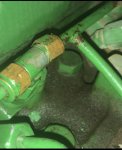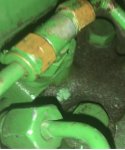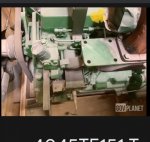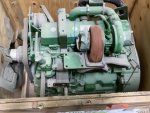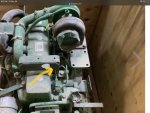I have found this is so true. With all this done, following the priming advice and so on we got it started.
It ran rough/knocked and the voltage was maxed out while the hz looked good I believe. I shut it down to regroup, triple check the oil level etc.
I restarted it and lowered the voltage to 210 I believe and it was running the same rough and making a knocking noise.
I am including a Dropbox link to a short video below. If you have any ideas let me know. I did look at the TM but did not see any helpful items but I may not have looked everywhere. If you look at the previous photos of the injection pump someone had loosened the lines at the pump as the paint is gone but who knows when that was.

www.dropbox.com



